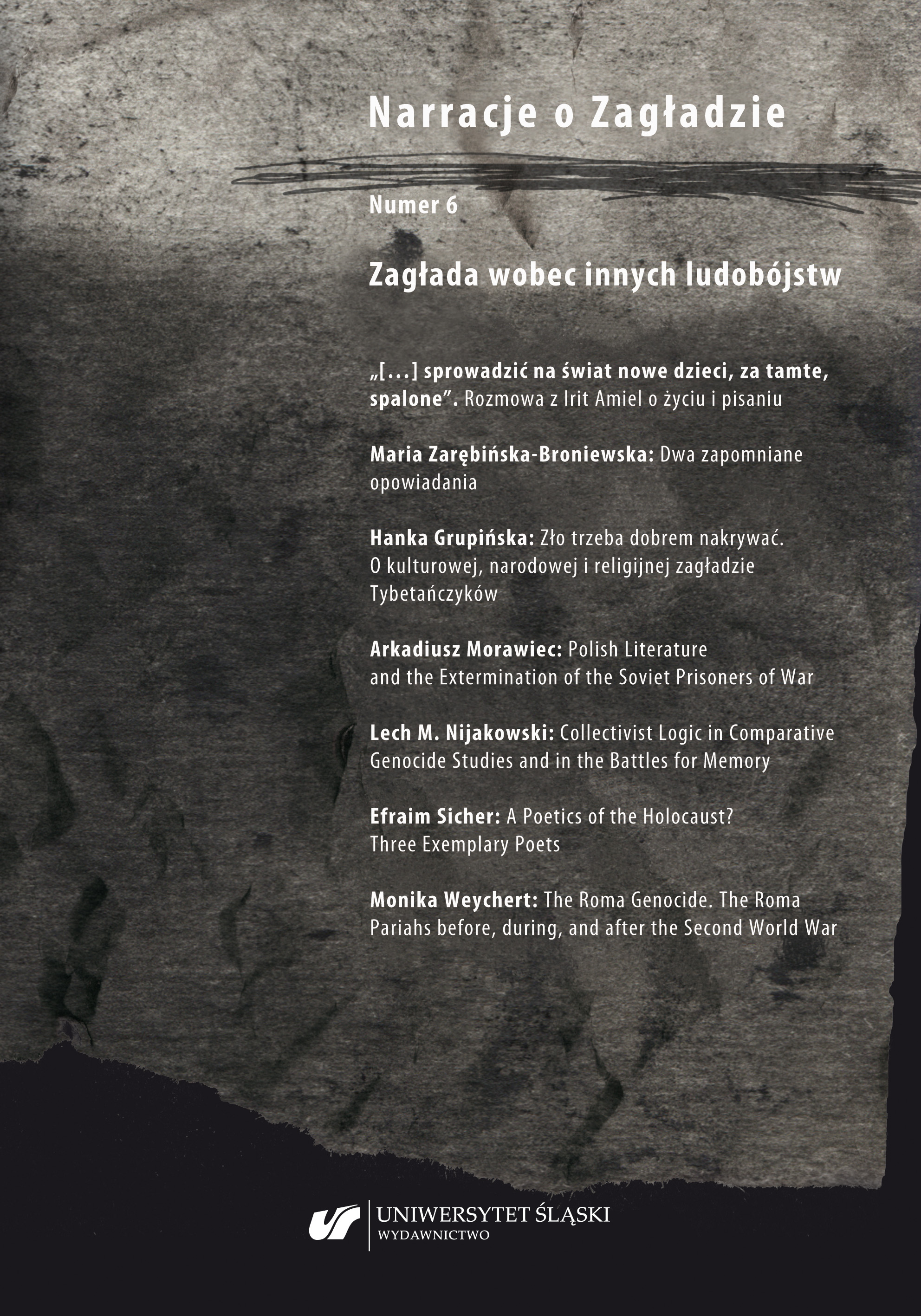Collectivist Logic in Comparative Genocide Studies and in the Battles for Memory
Collectivist Logic in Comparative Genocide Studies and in the Battles for Memory
Author(s): Lech M. NijakowskiSubject(s): Logic, Comparative history, Polish Literature, History of the Holocaust, Politics of History/Memory
Published by: Wydawnictwo Uniwersytetu Śląskiego
Keywords: historical comparative analysis; genocides; genocide studies; politics of memory
Summary/Abstract: The article aims to present the mechanisms of collectivist logic as it functions in three areas: (1) in the historical comparative analysis of genocides – the basic method of genocide studies; (2) in the activities of the organizations of victims and survivors, as well as in actions undertaken by animal rights activists; (3) in nationalist discourses and in the politics of memory. Collectivist logic is a set of operations that address human communities – groups of individuals linked together by significant social bonds and interests, and perceived as culturally distinctive – as the subject of history. As a result of the application of such logic, we may think about collective guilt and collective merit. The article discusses the advantages and disadvantages of historical comparative analysis as an essential methodological tool of genocide studies. The argument further focuses upon the use of the symbolic capital attributed to the term “genocide” in studies involving analyses comparing other crimes – as well as the industrial exploitation of animals – to genocides. Finally, the author describes the relationship between the state policy of memory, nationalist discourses, and the academic integrity of genocide scholars.
Journal: Narracje o Zagładzie
- Issue Year: 2020
- Issue No: 6
- Page Range: 39-60
- Page Count: 22
- Language: English

